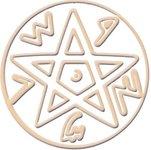The Institute was founded in 1934 as the Department of Archaeology of the Hebrew University of Jerusalem. In 1967 it became the Institute of Archaeology. Today the Institute is an independent research and teaching unit within the Faculty of Humanities, with a staff that provides administrative and scientific assistance as well as the technical facilities necessary to carry out its research projects. Academic programs include studies for B.A., M.A. and Ph.D. degrees in prehistoric, biblical, and classical archaeology, Civilizations of the Ancient Near East and Computational Archaeology.
Since its creation as the Department of Archaeology, the Institute has been involved in many major archaeological endeavors and interdisciplinary research programs in addition to its role as a teaching and training institution. Excavations at major prehistoric and historic sites have shaped many of the current paradigms in Israeli archaeology and contributed to a better understanding of past human behavior.Many of the excavations conducted by Institute members are reported and published in the Institute's Qedem series.

The department was housed in Mt. Scopus until 1948, when it moved to the new campus in Giv‘at Ram and to a building donated by the Belgian Friends of the Hebrew University and named in honor of Queen Elizabeth of Belgium. After the 1967 war the department moved back to its original building on Mt. Scopus, and became the Institute of Archaeology. A generous donation by the Carasso family enabled the research wing to be rebuilt and expanded to accommodate its growing collection of antiquities and increasing research activities. With an additional donation by the Belgian Friends of the Hebrew University, the teaching wing was rebuilt and named in honor of Queen Elizabeth of Belgium. This wing also contains the Institute’s newly renovated Emery and Claire Yass library and slide collection.
The Institute offers to its researchers as well as to external scholars conservation and photography services. Both laboratories have recently been refurbished and equipped with state-of-the-art facilities.

